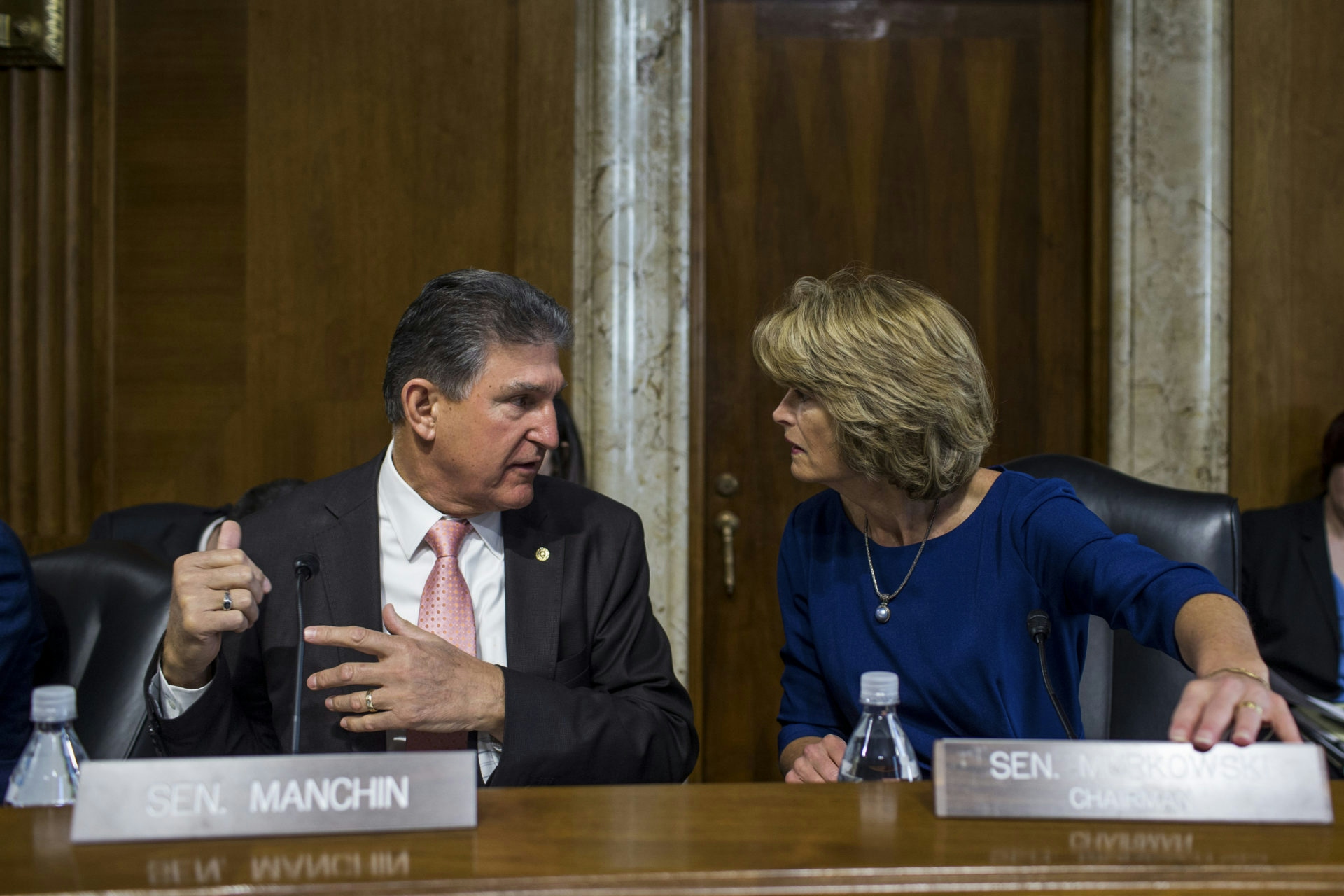Energy
Murkowski, 5 Other Senators Join Push for End of Nuclear Financing Ban

Six U.S. senators are calling on the U.S. International Development Finance Corp. to rescind a ban on nuclear energy financing abroad as the agency takes shape, adding to a groundswell of supporters pressuring the government to free up financial assistance for civil nuclear projects.
The prohibition “sends a harmful signal that American primacy in the civil nuclear sector is waning,” wrote Senate Energy and Natural Resources Chairman Lisa Murkowski (R-Alaska), ranking member Joe Manchin (D-W.Va.) and four other Republicans. Murkowski announced the Oct. 24 letter at the International Framework for Nuclear Energy Cooperation’s Nov. 14 Global Ministerial Conference in Washington.
“Energy-based prosperity requires long-term investments and relationships, which ultimately form the basis for any enhancement to our national security,” Murkowski said. “Civil nuclear projects are impossible without the diplomatic agreements and a substantial government-backed financing.”
Republican Sens. Kevin Cramer of North Dakota, John Barrasso of Wyoming, Mike Crapo of Idaho and Lindsey Graham of South Carolina also signed the letter, addressed to DFC Chief Executive Adam Boehler.
The Overseas Private Investment Corp. is working on a response, an OPIC spokesperson said Monday.
OPIC, with the U.S. Agency for International Development’s Development Credit Authority, is transitioning into the DFC under a law enacted in 2018. The Senate confirmed Boehler, a former senior adviser to Health and Human Services Secretary Alex Azar, as DFC’s first chief executive on Sept. 26, but the agency's launch is currently pending an appropriation. Congress is still ironing out funding for fiscal 2020.
The inability to promise federal financing support disadvantages economic and security interests, according to nuclear advocates, whose future customers are largely seen as international. The U.S. Nuclear Industry Council sent its own letter in March urging the end of the provision in OPIC’s Environmental and Social Policy Statement barring the agency from supporting nuclear energy projects abroad. In tandem with employment and clean energy considerations, the anticipated lower costs of advanced reactors “justifies reassessment of this policy,” USNIC wrote.
The Civil Nuclear Trade Advisory Committee, a set of industry representatives advising the Commerce Department, also reiterated its request to Commerce Secretary Wilbur Ross to terminate the prohibition in a letter dated Nov. 12.
“Clearly, there are a number of people within and outside of the administration who believe that this policy needs to be addressed so that advanced nuclear technologies are not discriminated against in our efforts to enhance U.S. exports,” said Jeff Merrifield, a partner at Pillsbury Winthrop Shaw Pittman LLP and a former Nuclear Regulatory Commissioner currently advising advanced reactor companies.
The senators' efforts "really add muscle" to the push for the DFC to address the nuclear issue, said David Blee, president and chief executive of the USNIC.
The push comes as Murkowski, now in her final term as committee chairman, focuses increasingly on enhancing and expanding the set of energy financing tools available in an effort to increase the United States’ attractiveness to other countries looking to source large energy projects.
In August, she released a discussion draft of the Strategic Energy for America Act that would seek to leverage the Export-Import Bank and DFC to finance the export of natural gas infrastructure and civil nuclear power.
The committee has taken comments from the public on the draft and is still “in the vetting stage,” with no timing to announce yet on when it would be formally introduced, she told reporters Oct. 30.
Jacqueline Toth previously worked at Morning Consult as a reporter covering energy and climate change.